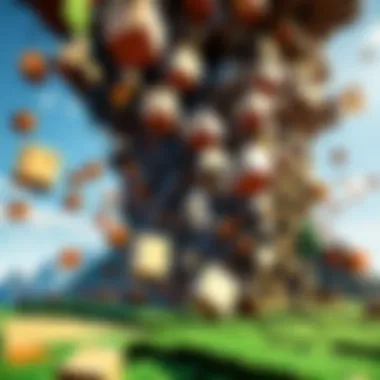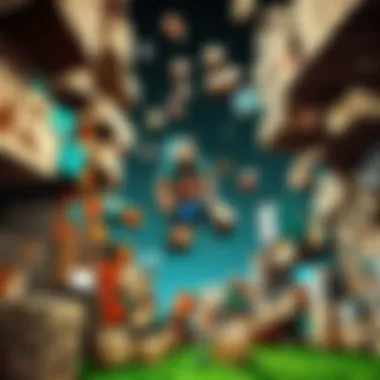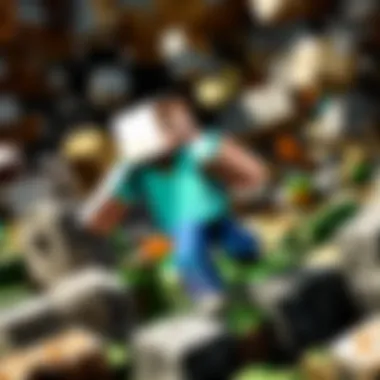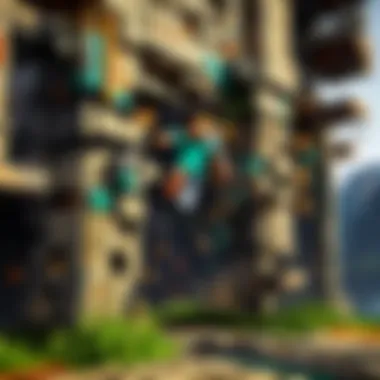Exploring Falling Blocks Mechanics in Minecraft


Intro
Falling blocks in Minecraft are more than just a game mechanic; they represent a unique intertwining of physics, strategy, and creativity. Understanding how these blocks behave can give players a significant edge in various game modes, from survival and creative to adventure. The interaction with these blocks not only shapes gameplay but also illustrates the broader ecosystem of Minecraft’s game design philosophy.
The appeal of falling blocks extends beyond their immediate function. They provoke curiosity and foster engagement from players of all ages, prompting them to experiment and innovate within their virtual environments. By examining the implications, strategies, and potential evolutions of this mechanic, we can grasp a fuller picture of what makes Minecraft such a compelling experience.
In this exploration, we will dive into the nuances of how falling blocks operate, their strategic importance, and their future within the Minecraft universe. Let’s journey into this fascinating world together.


Minecraft Game Guides
Understanding Falling Blocks
Falling blocks are a core element of Minecraft’s physics engine. When player-placed blocks like gravel or sand are unsupported, they fall to the ground, adhering to gravity laws similar to the real world. This seemingly simple mechanic can lead to a wealth of complex interactions and player strategies.
- Mechanics in Action: Upon removal of a block supporting the falling block, the game triggers a fall command. This can be a critical tactic in PvP scenarios, where players might aim to cause opponents to be trapped or harmed.
- Applications in Building: When designing structures, knowing how these blocks interact can lead to more stable and creative builds. Players often use falling blocks to create traps or decorative features.


"It’s like mathematics brought to life; every time a block falls, you have to solve a problem in real time!"
Crafting Strategies Involving Falling Blocks
Players can incorporate falling blocks into crafting strategies that gain them immediate benefits. For instance, falling gravel can produce flint, useful for fire-starting or arrow crafting,
- Gravel ➔ Falls when unsupported, yielding flint upon breakage.
- Sand ➔ Used in creating glass or crafting TNT, showing its diverse applications.


Understanding these properties is essential for players, especially those who enjoy resource gathering and crafting.
Utilizing Falling Blocks in Redstone Creations
Falling blocks can serve unique roles in Redstone contraptions. They can act as triggers or even part of mechanisms themselves. Knowing how to integrate them effectively means you can create machines or traps that work automatically, enhancing gameplay.
- Example: A player could design a Redstone clock that activates a falling block to crush mobs or gather resources when conditions are met.
Example Redstone setup
Redstone ➔ Block ➔ Observer ➔ Falling Block (TNT)



